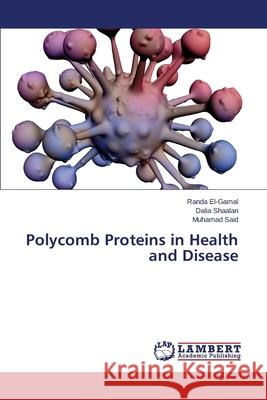Polycomb Proteins in Health and Disease » książka
Polycomb Proteins in Health and Disease
ISBN-13: 9783659385193 / Angielski / Miękka / 2015 / 212 str.
Polycomb group (PcG) proteins are well-conserved chromatin factors that repress the transcription of their target genes. They bind to the genome at specific sites and act on chromatin through the regulation of both post-translational histone modifications and higher-order chromatin structure. Aberrant expression of multiple PcG genes are implicated in different types of human cancers. PcGs are considered as novel prognostic markers both in terms of improving diagnosis as well as predicting patient response to treatment. Pharmacological targeting of PcG proteins is emerging as an attractive strategy. In addition, some nutrients can modify the expression of PcG proteins in physiologic and pathologic processes.
Polycomb group (PcG) proteins are well-conserved chromatin factors that repress the transcription of their target genes. They bind to the genome at specific sites and act on chromatin through the regulation of both post-translational histone modifications and higher-order chromatin structure. Aberrant expression of multiple PcG genes are implicated in different types of human cancers. PcGs are considered as novel prognostic markers both in terms of improving diagnosis as well as predicting patient response to treatment. Pharmacological targeting of PcG proteins is emerging as an attractive strategy. In addition, some nutrients can modify the expression of PcG proteins in physiologic and pathologic processes.











